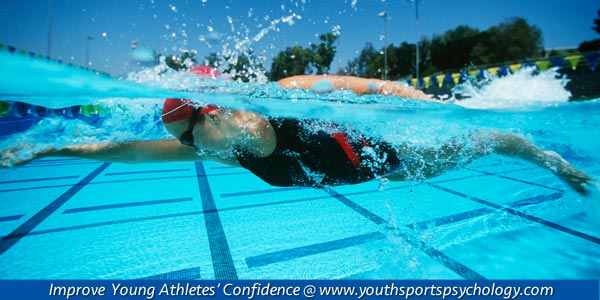
When Kids Have High Expectations in Sports
Sometimes kids don’t even understand that they go into a game or practice with big expectations that pressure them to perform well.
For example, they might have a list of unwritten, unspoken “shoulds” and “shouldn’ts.”
These might include, “I should never make mistakes,” “I should always be the top scorer,” “I should never double fault,” or, “I should never have a turnover.”
These expectations—which are different than the expectations of coaches—can hurt kids’ confidence.
Here’s What Happens
Kids go into a game with high expectations, and the minute they don’t meet these expectations, they start to doubt themselves. Their confidence sinks.
You don’t want your athletes to have these pressure-packed expectations because they’ll focus on outcome, scores, and stats.
Instead, kids need to focus on smaller, more manageable goals. For example, they might focus on getting open for the shot, seeing the target well, or getting open to take a shot.
These aren’t technical goals, they’re mini-goals to help kids focus on running plays and focusing on execution instead of outcome.
Related Articles on Youth Sports:
- How This Sport Builds Confidence and Focus in Kids
- How Social Media Hurts Sports Kids’ Confidence
- Addressing Anxiety, Mistakes and Low Confidence in Youth Sports
*Subscribe to The Sports Psychology Podcast on iTunes
*Subscribe to The Sports Psychology Podcast on Spotify
Help Young Athletes Boost Confidence in Sports!
Every day, we receive letters from parents like you who want their children and teens to excel in sports. However, these parents can see fear, doubt, and frustration on the faces of their kids who struggle with the “inner” game of sports. But these parents have no idea how to help their kids overcome the worries, expectations and self-defeating thoughts that prevent their young athletes from feeling confident and successful.
You can benefit from our 15-plus years’ of work in sports psychology and sports parenting research. Now, you can tap into our secrets to sports success through a cutting-edge, 14-day program that helps young athletes overcome the top “mental game” challenges that sports parents face—and the top challenges young athletes face.

